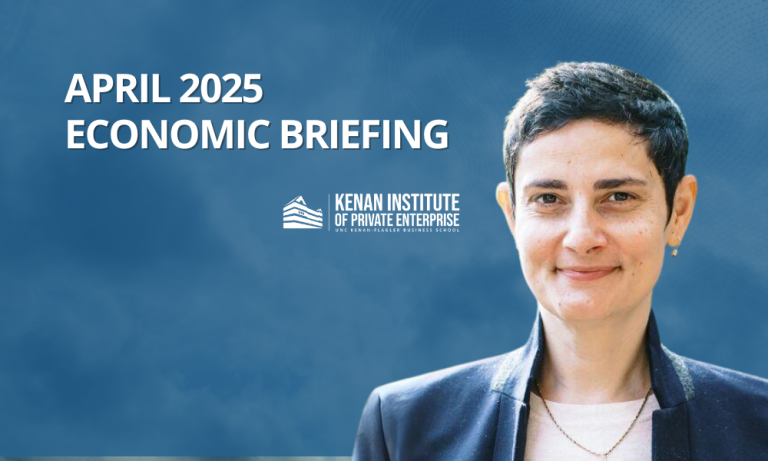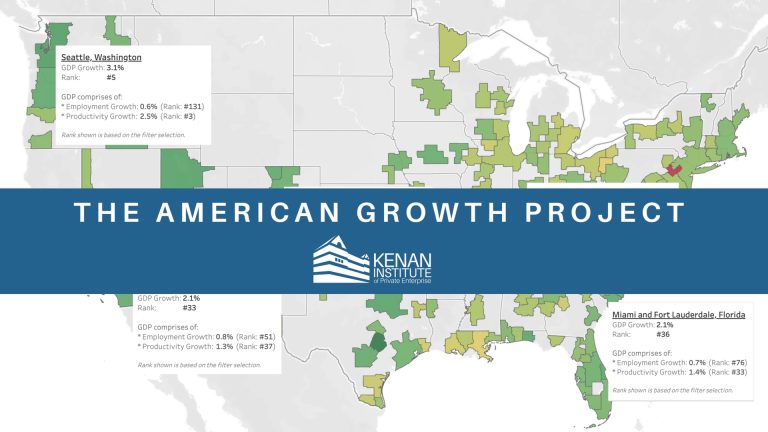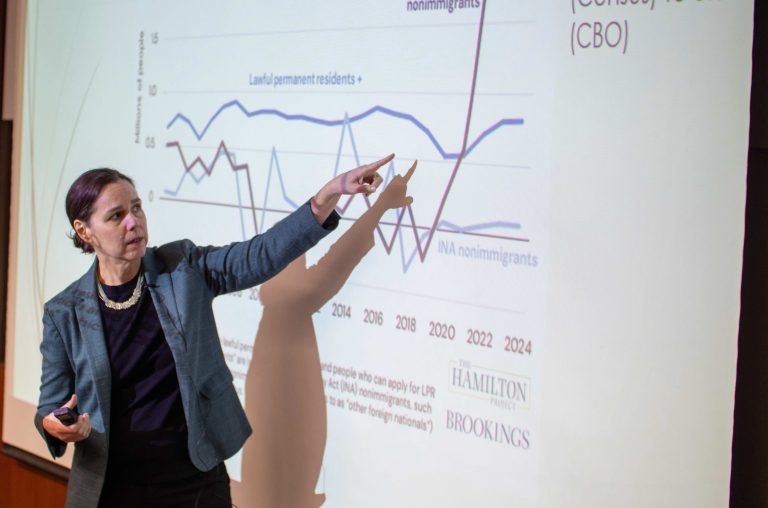
Consumers’ Darkening Mood
In the institute's April 4 briefing, Research Director Camelia Kuhnen dissected consumer confidence and sentiment data with an emphasis on growing pessimism among young people and answered questions on potential economic effects of new tariffs.

Please join us for an exclusive conversation with Eli Gross on March 7 at 1 PM as a part of the Dean’s Speaker Series, hosted by the Kenan Institute in partnership with UNC Kenan-Flagler Business School.

The International Empirics of Management
A country’s national income broadly depends on the quantity and quality of workers and capital. But how well these factors are managed within and between firms may be a key determinant of a country’s productivity and its GDP.

The American Growth Project
Our country's cities, towns and rural communities hold the key to understanding current and forecasted national trends – but for far too long, our nation’s microeconomic data has been lacking. The American Growth Project is here to help.

Brands and Branding Around the World
Brands and branding are key to achieving competitive advantage in global markets. Yet, brands and their managers are facing new challenges and opportunities in light of numerous trends and disruptions that are changing the landscape of marketing in an international context. The climate crisis, a pandemic, and deglobalization winds—marked by China–West trade tensions, wars, and other trade-related disruptions, to name a few—are challenging branding around the world.
Kenan Institute Distinguished Fellow Josh Lerner of Harvard Business School says achieving resilience is difficult, in part because businesses are hard to change.
This paper uses two large panel data sets in China to study the effects of a health shock on household income mobility from 1991 to 2016. We compare outcomes of households with a member who receives a health shock with comparable households that do not receive any health shocks.

Dean’s Speaker Series: Deval Patrick
Former Massachusetts Gov. Deval Patrick of the Center for Public Leadership at the Harvard Kennedy School shared insights on resilience and leading through uncertain times with Dean Mary Margaret Frank on April 23.
Kenan Institute Distinguished Fellow Tara Watson discussed "An Economist’s Guide to Immigration Reform" before an audience of UNC Kenan-Flagler Business School faculty and students on April 11.
Learn more about the impact of machine learning on the resiliency of supply chain management in this recent article in the Harvard Business Review, co-authored by UNC Kenan-Flagler Business School’s Vinayak Deshpande.
This paper defines risk-on risk-off (RORO), an elusive terminology in pervasive use, as the variation in global investor risk aversion. Our high-frequency RORO index captures time-varying investor risk appetite across multiple dimensions: advanced economy credit risk, equity market volatility, funding conditions, and currency dynamics. The index exhibits risk-off skewness and pronounced fat tails, suggesting its amplifying potential for extreme, destabilizing events. Compared with the conventional VIX measure, the RORO index reflects the multifaceted nature of risk, underscoring the diverse provenance of investor risk sentiment. Practical applications of the RORO index highlight its significance for international portfolio reallocation and return predictability.





Five Economic Trends to Watch in 2025
Kenan Institute Chief Economist Gerald Cohen kicks off 2025 with a rundown of five issues that will be top of mind for business leaders and policymakers, accompanied by his analysis.